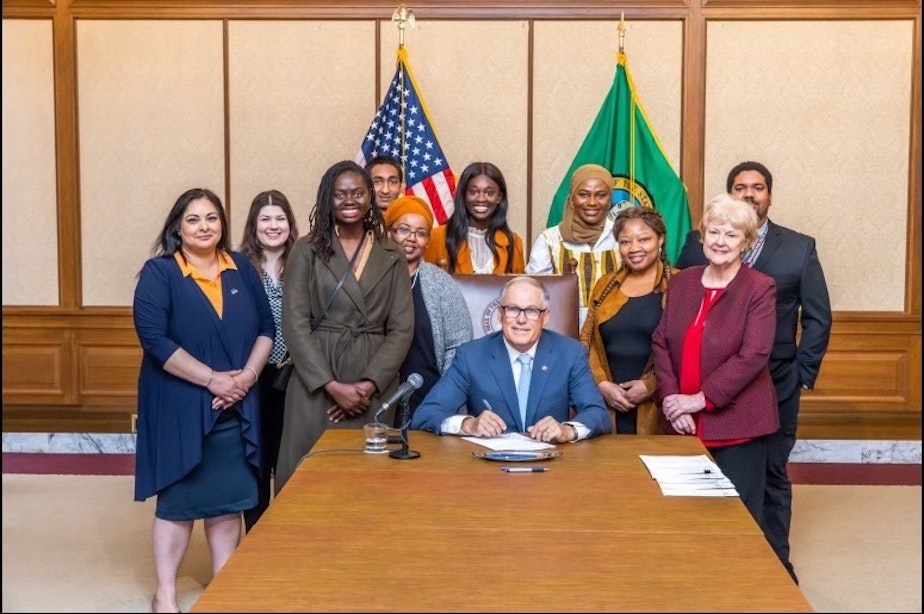Coalition against female genital mutilation supports victims in Washington state

A coalition of nonprofit and state organizations, formed under a Washington law creating criminal and civil penalties for female genital mutilation, has set out to educate and support victims and people at risk of undergoing the nonmedical procedures.
The law, which took effect last year, cites more than 500,000 people in the U.S. who have either experienced or are susceptible to female genital mutilation, a cultural practice meant to suppress female sexual desires and improve one’s prospects of marriage. The law is aimed at protecting girls under 18 in particular.
In a 2016 report, the nonprofit statistics hub Population Reference Bureau ranked the Seattle-Tacoma-Bellevue area fifth among U.S. metropolitan cities home to people most at risk of female genital mutilation.
RELATED: Is the pandemic causing a surge in female genital mutilation?
Female genital mutilation has been a federal crime since 1996, and in 2020, U.S. legislators bolstered the law to raise the maximum prison sentence from five years to 10. But that hasn’t stopped families from sending their children away to have the procedure done, said Muna Osman, a nurse practitioner and a co-leader of the Washington Coalition to End Female Genital Mutilation and Cutting.
Osman advises doctors on how to work with patients who have undergone female genital mutilation, and also hosts weekly online forums for victims of gender-based trauma. She said she’s heard accounts of girls living in the Seattle area being sent abroad to undergo female genital mutilation. She pointed to one woman, now a college freshman, who said it happened to her when she was 16.
“They kept her back home for a year until she healed, then they brought her back to the US,” Osman said.
An advocate for the new state law, Osman said it was important that the policy reflect the cultural experiences of people most impacted by female genital mutilation, and focus on harm reduction.
As for these girls — nobody was there for me, to protect me,” she said. “But we are here now to protect them.”
The new law also explicitly outlines penalties for doctors who perform female genital mutilation procedures, though it’s not clear if the practice is happening in Washington.
“While its extremely likely female genital mutilation would have received disciplinary action before the passage of SB 5453, the Washington Medical Commission was still supportive of the law as Washington was one of only 10 states in the country not addressing female genital mutilation,” said Stephanie Mason, a spokesperson for the commission.
RELATED: This Seattle woman says the courts barely protect her from domestic violence
While concrete data on how often female genital mutilation presently impacts Washingtonians is lacking, what’s certain is that women need resources to help them through the trauma, said Absa Samba, a co-founder of the Washington Coalition to End Female Genital Mutilation and Cutting.
“This is a real opportunity to model what this work can look like around the US. And I think Washington is leading in that and we need to keep that going,” Samba said.

